I
“There is a Thorn—it looks so old,
In truth, you’d find it hard to say
How it could ever have been young,
It looks so old and grey.
Not higher than a two years' child
It stands erect, this aged Thorn;
No leaves it has, no prickly points;
It is a mass of knotted joints,
A wretched thing forlorn.
It stands erect, and like a stone
With lichens is it overgrown.
II
“Like rock or stone, it is o’ergrown,
With lichens to the very top,
And hung with heavy tufts of moss,
A melancholy crop:
Up from the earth these mosses creep,
And this poor Thorn they clasp it round
So close, you’d say that they are bent
With plain and manifest intent
To drag it to the ground;
And all have joined in one endeavour
To bury this poor Thorn for ever.
III
“High on a mountain’s highest ridge,
Where oft the stormy winter gale
Cuts like a scythe, while through the clouds
It sweeps from vale to vale;
Not five yards from the mountain path,
This Thorn you on your left espy;
And to the left, three yards beyond,
You see a little muddy pond
Of water—never dry,
Though but of compass small, and bare
To thirsty suns and parching air.
IV
“And, close beside this aged Thorn,
There is a fresh and lovely sight,
A beauteous heap, a hill of moss,
Just half a foot in height.
All lovely colours there you see,
All colours that were ever seen;
And mossy network too is there,
As if by hand of lady fair
The work had woven been;
And cups, the darlings of the eye,
So deep is their vermilion dye.
V
“Ah me! what lovely tints are there
Of olive green and scarlet bright,
In spikes, in branches, and in stars,
Green, red, and pearly white!
This heap of earth o’ergrown with moss,
Which close beside the Thorn you see,
So fresh in all its beauteous dyes,
Is like an infant’s grave in size,
As like as like can be:
But never, never any where,
An infant’s grave was half so fair.
VI
“Now would you see this aged Thorn,
This pond, and beauteous hill of moss,
You must take care and choose your time
The mountain when to cross.
For oft there sits between the heap,
So like an infant’s grave in size,
And that same pond of which I spoke,
A Woman in a scarlet cloak,
And to herself she cries,
‘Oh misery! oh misery!
Oh woe is me! oh misery!’
VII
“At all times of the day and night
This wretched Woman thither goes;
And she is known to every star,
And every wind that blows;
And there, beside the Thorn, she sits
When the blue daylight’s in the skies,
And when the whirlwind’s on the hill,
Or frosty air is keen and still,
And to herself she cries,
‘Oh misery! oh misery!
Oh woe is me! oh misery!’ ”
VIII
“Now wherefore, thus, by day and night,
Thus to the dreary mountain-top
Does this poor Woman go?
And why sits she beside the Thorn
When the blue daylight’s in the sky
Or when the whirlwind’s on the hill,
Or frosty air is keen and still,
And wherefore does she cry?—
O wherefore? wherefore? tell me why
Does she repeat that doleful cry?”
IX
“I cannot tell; I wish I could;
For the true reason no one knows:
But would you gladly view the spot,
The spot to which she goes;
The hillock like an infant’s grave,
The pond—and Thorn, so old and grey;
Pass by her door—’tis seldom shut—
And if you see her in her hut—
Then to the spot away!
I never heard of such as dare
Approach the spot when she is there.”
X
“But wherefore to the mountain-top
Can this unhappy Woman go,
Whatever star is in the skies,
Whatever wind may blow?”
“Full twenty years are past and gone
Since she (her name is Martha Ray)
Gave with a maiden’s true good-will
Her company to Stephen Hill;
And she was blithe and gay,
While friends and kindred all approved
Of him whom tenderly she loved.
XI
“And they had fixed the wedding day,
The morning that must wed them both;
But Stephen to another Maid
Had sworn another oath;
And, with this other Maid, to church
Unthinking Stephen went—
Poor Martha! on that woeful day
A pang of pitiless dismay
Into her soul was sent;
A fire was kindled in her breast,
Which might not burn itself to rest.
XII
“They say, full six months after this,
While yet the summer leaves were green,
She to the mountain-top would go,
And there was often seen.
What could she seek?—or wish to hide?
Her state to any eye was plain;
She was with child, and she was mad;
Yet often was she sober sad
From her exceeding pain.
O guilty Father—would that death
Had saved him from that breach of faith!
XIII
“Sad case for such a brain to hold
Communion with a stirring child!
Sad case, as you may think, for one
Who had a brain so wild!
Last Christmas-eve we talked of this,
And grey-haired Wilfred of the glen
Held that the unborn infant wrought
About its mother’s heart, and brought
Her senses back again:
And, when at last her time drew near,
Her looks were calm, her senses clear.
XIV
“More know I not, I wish I did,
And it should all be told to you;
For what became of this poor child
No mortal ever knew;
Nay—if a child to her was born
No earthly tongue could ever tell;
And if ’twas born alive or dead,
Far less could this with proof be said;
But some remember well,
That Martha Ray about this time
Would up the mountain often climb.
XV
“And all that winter, when at night
The wind blew from the mountain-peak,
’Twas worth your while, though in the dark,
The churchyard path to seek:
For many a time and oft were heard
Cries coming from the mountain head:
Some plainly living voices were;
And others, I’ve heard many swear,
Were voices of the dead:
I cannot think, whate’er they say,
They had to do with Martha Ray.
XVI
“But that she goes to this old Thorn,
The Thorn which I described to you,
And there sits in a scarlet cloak,
I will be sworn is true.
For one day with my telescope,
To view the ocean wide and bright,
When to this country first I came,
Ere I had heard of Martha’s name,
I climbed the mountain’s height:—
A storm came on, and I could see
No object higher than my knee.
XVII
“’Twas mist and rain, and storm and rain:
No screen, no fence could I discover;
And then the wind! in sooth, it was
A wind full ten times over.
I looked around, I thought I saw
A jutting crag,—and off I ran,
Head-foremost, through the driving rain,
The shelter of the crag to gain;
And, as I am a man,
Instead of jutting crag, I found
A Woman seated on the ground.
XVIII
“I did not speak—I saw her face;
Her face!—it was enough for me;
I turned about and heard her cry,
‘Oh misery! oh misery!’
And there she sits, until the moon
Through half the clear blue sky will go;
And when the little breezes make
The waters of the pond to shake,
As all the country know,
She shudders, and you hear her cry,
‘Oh misery! oh misery!’ ”
XIX
“But what’s the Thorn? and what the pond?
And what the hill of moss to her?
And what the creeping breeze that comes
The little pond to stir?”
“I cannot tell; but some will say
She hanged her baby on the tree;
Some say she drowned it in the pond,
Which is a little step beyond:
But all and each agree,
The little Babe was buried there,
Beneath that hill of moss so fair.
XX
“I’ve heard, the moss is spotted red
With drops of that poor infant’s blood;
But kill a new-born infant thus,
I do not think she could!
Some say, if to the pond you go,
And fix on it a steady view,
The shadow of a babe you trace,
A baby and a baby’s face,
And that it looks at you;
Whene’er you look on it, ’tis plain
The baby looks at you again.
XXI
“And some had sworn an oath that she
Should be to public justice brought;
And for the little infant’s bones
With spades they would have sought.
But instantly the hill of moss
Before their eyes began to stir!
And, for full fifty yards around,
The grass—it shook upon the ground!
Yet all do still aver
The little Babe lies buried there,
Beneath that hill of moss so fair.
XXII
“I cannot tell how this may be,
But plain it is the Thorn is bound
With heavy tufts of moss that strive
To drag it to the ground;
And this I know, full many a time,
When she was on the mountain high,
By day, and in the silent night,
When all the stars shone clear and bright,
That I have heard her cry,
‘Oh misery! oh misery!
Oh woe is me! oh misery!’ ”





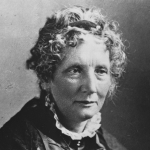
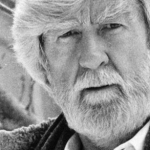



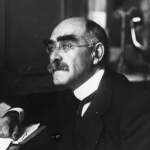






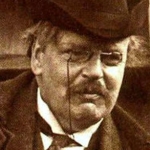


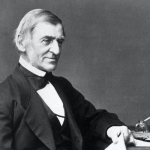
Comment form: